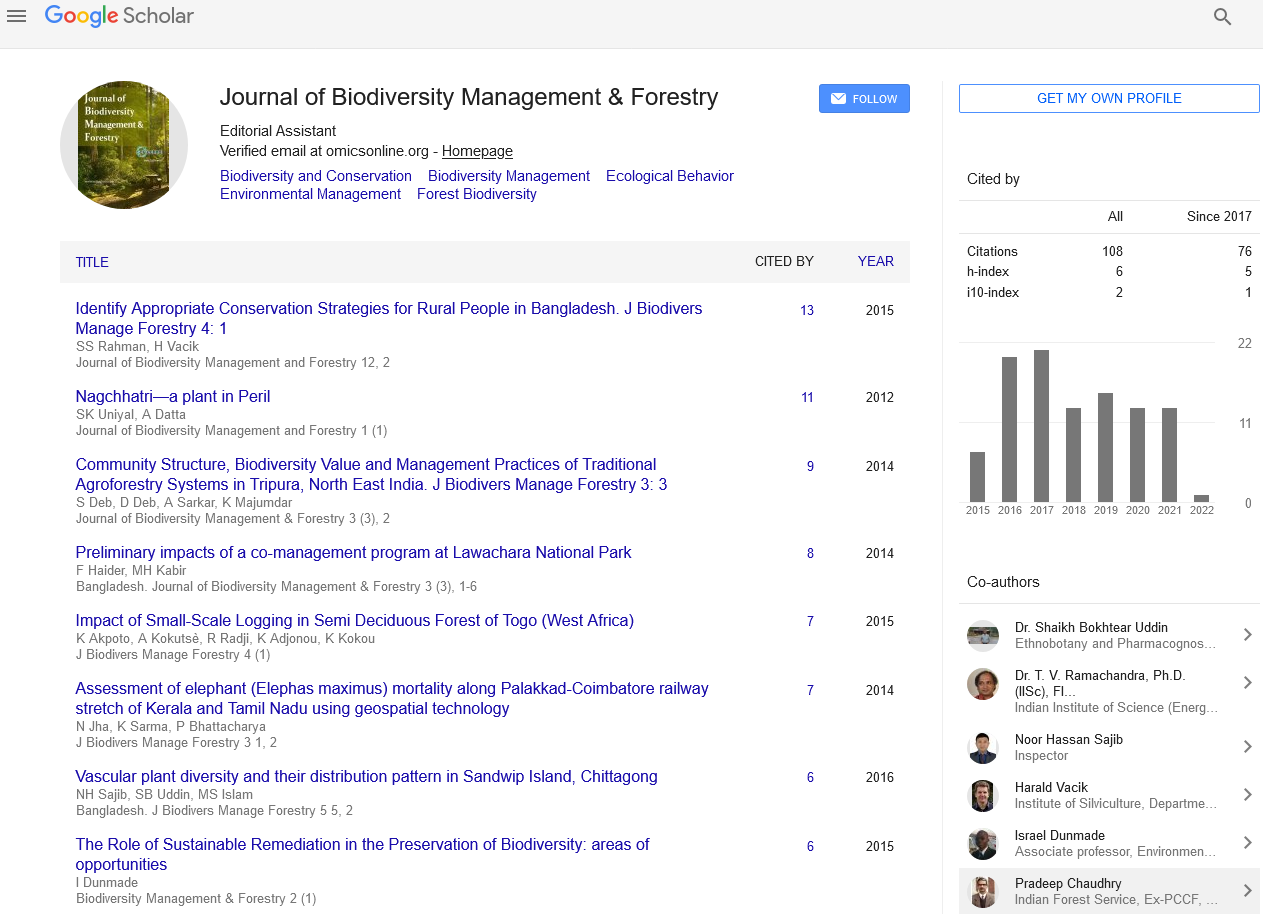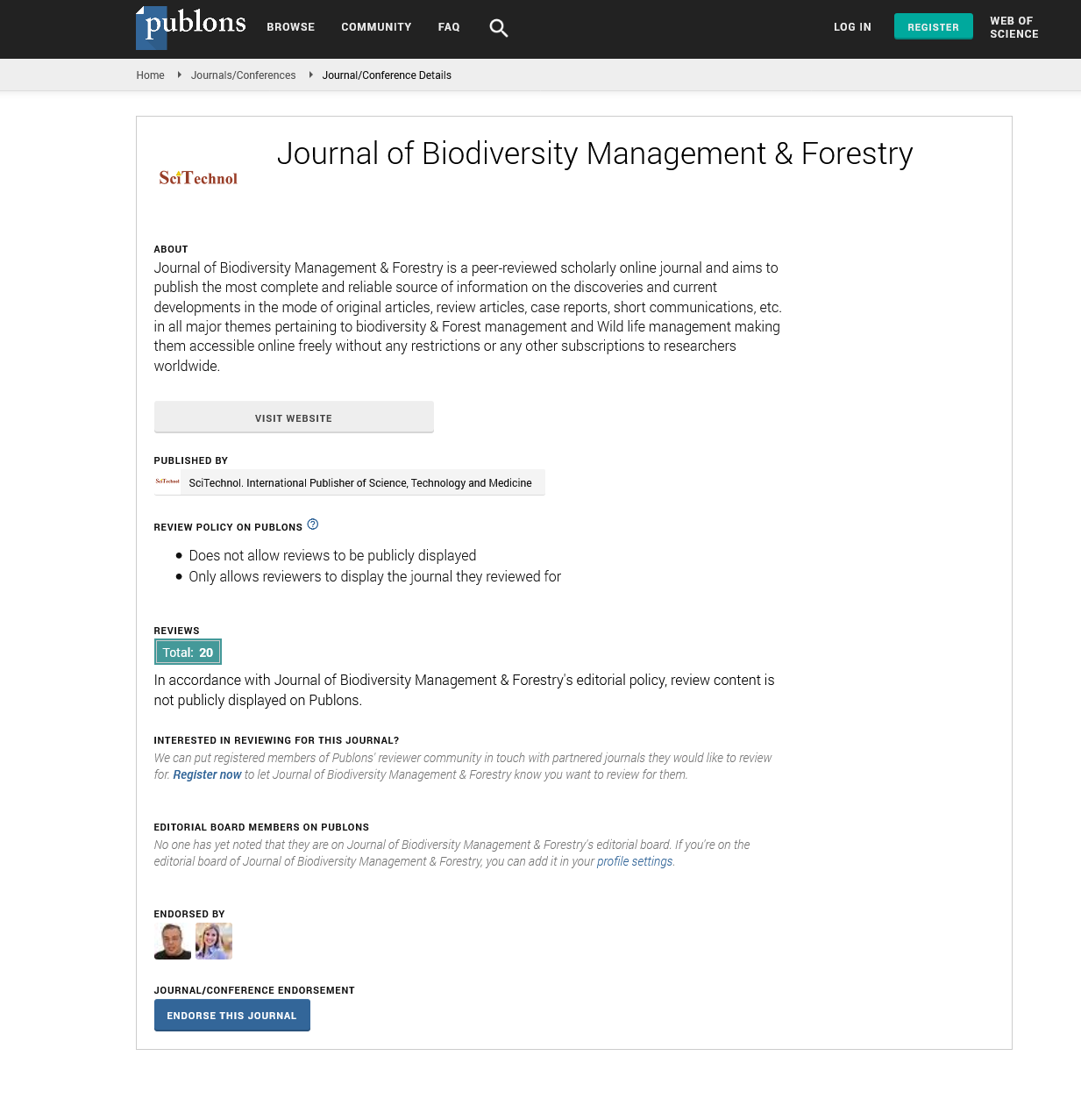Modeling assessment of Climate Change impacts on water quality in chesapeake bay, USA
Richard Tian
University of Massachusetts, USA
: J Biodivers Manage Forestry
Abstract
Climate change has and will have impacts on coastal waters, and robust future projections are critical for adaptation and restoration planning in the Chesapeake Bay region. A series of climate change scenarios have been simulated with airshed, watershed, and estuary models to examine the influence of environmental conditions on Chesapeake water quality by 2035 through 2055, with a 10-year interval of assessment. Down-scaled analysis of a 31-member global climate model (GCM) ensemble projection was used to estimate air temperature increase for each assessed period, and the Chesapeake Phase 6 Watershed Model was used to project future changes in river discharge and nutrient loading. The estuarine water quality model, CH3D-ICM, was used to simulate response of water quality to climate changes in terms of dissolved oxygen (DO) concentration and hypoxic volume. The model scenarios showed that air temperature and heat flux increase have the most impact on water quality due to decreased DO solubility and increased stratification and biogeochemical processes. However, a significant portion of the adverse influence of climate warming on water quality is balanced by sea level rise, which improves water quality due to increased gravitational estuarine circulation and renewal of bottom water where hypoxia occurs. Even with this positive effect of sea level rise, water quality is projected to degrade under climate change conditions. By 2055, the hypoxia volume in the Bay will increase by 50%.
Biography
Richard Tian is engaged in our modeling effort related to restoration of the Chesapeake Bay. he worked with the University of Massachusetts and Harvard University. He has experience in coupled physico-biological and water quality model development and application. He was the lead scientist in developing the generalized biological model (GBM) coupled with both Harvard Ocean Prediction System (HOPS) and Finite-Volume Coastal Ocean Model (FVCOM). He looks forward to striving toward best management practice and restoration.
 Spanish
Spanish  Chinese
Chinese  Russian
Russian  German
German  French
French  Japanese
Japanese  Portuguese
Portuguese  Hindi
Hindi 
